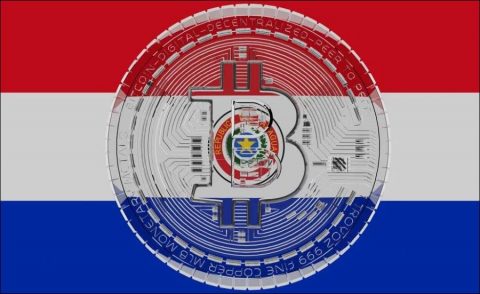After El Salvador took a historic step and made Bitcoin the legal currency, there were statements of support from politicians in Latin American countries such as Argentina, Brazil and Ecuador. Because with this move, El Salvador can get rid of its dependence on the dollar and the IMF and can attract billions of dollars of international capital to the country.
If El Salvador’s decision is successful, other countries will follow. Candidates include Nigeria, Russia, Argentina, etc. countries were named. However, in recent days, the name of Paraguay, a South American country, has come to the fore. Could Paraguay really be a new domino that will start an irrepressible move by adopting Bitcoin in the face of the dominance of unlimited coins? Let’s examine together:
Carlos Rejala, who is a deputy in the Paraguayan parliament, prepared a bill that will bring Bitcoin regulations similar to El Salvador to the country. Rejala, in a post on Twitter on June 17, stated that they will make the bill into law in July.
We do not know the details of the bill. However, Rejela states that they aim to make Paraguay a Bitcoin center of attraction. Juanjo Benitez Rickmann, CEO of Bitcoin.com.py, one of the country’s cryptocurrency exchanges, also announced that they are working with Rejela on the bill. An issue that Rickmann underlines in the purpose of the bill reveals the real driving force behind Paraguay’s possible Bitcoin move. Rickmann explains that they are preparing a Bitcoin mining project with cheap and renewable energy produced by the country.
Many dams and hydroelectric power stations are operating in Paraguay, built on large rivers. These power plants produce so much energy that 80 to 90 percent of the electricity generated is sold to neighboring countries such as Argentina and Brazil. Especially Itapu dam is the second most electricity generating hydroelectric power plant in the world. Electricity is the second largest source of income for Paraguayan exports after soybeans. The country earned $1.5 billion from this energy sale in 2019, according to OECD data.
This huge surplus of clean energy can really be an opportunity for Paraguay in the field of Bitcoin. Bitcoin is not minted for free like unlimited coins. According to the modeling of Charles Edwards, at the beginning of June, the electricity cost of producing an average Bitcoin in the world was 12500 dollars and the total cost was approximately 21000 dollars. If Paraguay adopts Bitcoin and becomes a mining country, it can sell every Bitcoin it produces for 20000 dollars with a profit of about 13000 dollars today. Since electricity generation is plentiful and cheap in Paraguay, the cost of electricity will likely be well below the world average. Even if Bitcoin reaches 100,000, 200,000 or even 300,000 dollars, as some world giant investment institutions predict, Paraguay’s profit from this business can be incredible.
Moreover, Paraguay does not need to wait to build new energy plants like El Salvador. Dams are already ready and working. In addition, China, where the world’s largest Bitcoin mining facilities are located, is closing these facilities due to energy deficit. In other words, even if Paraguay wants to buy special machines that will produce Bitcoin, it will face a surplus in the market. Thus, the country can turn clean energy, which it sells to its neighbors for free, into a very profitable sector.
The spread of Bitcoin mining to other countries outside of China in a more democratic way and the increase in the use of clean energy in Bitcoin production would also be very beneficial for the entire global cryptocurrency ecosystem.
However, one should not be deceived by the fact that some foreign accounts, especially on social media, broadcast as if Paraguay had already enacted this law. Carlos Rejala’s party, which took action to pass the Bitcoin-supported law, has only 2 deputies in the 80-seat parliament. It is unclear how much support Rejala will receive in parliament in his projects to make Bitcoin the legal currency of Paraguay and to make the country a clean Bitcoin mining base with low taxes. I hope the bill becomes law as Rejala said in July. However, it is not right to pretend that an event full of uncertainties that has not yet happened has already happened.
In the near future, clean Bitcoin mining will most likely become a very important and profitable industry all over the world. Can Turkey use its very high ‘solar energy’ potential in this area, which it has not yet properly evaluated? This is the question we should ask ourselves…
Visits: 138




